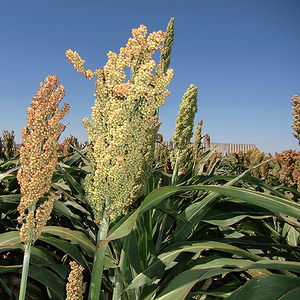ASABE announces standard for sustainable agriculture production




USDA Agricultural Research Service
June 27, 2016
BY Erin Krueger
The American Society of Agricultural and Biological Engineers has completed a standard that establishes a framework for charting progress toward sustainable agriculture production.
According to ASABE, the standard is intended for application with all typical farming operations found around the world. Known as ANSI/ASABE S629, or the Framework to Evaluate the Sustainability of Agriculture Production Systems, the standard includes provisions for defining and benchmarking key performance indicators, setting coals, implementing strategies for continuous improvements, and reporting improvements.
The ASABE also noted the framework is not intended to be a prescriptive criterion from creating a sustainability certification program. The society also said it anticipates the key performance indicators developed across the frameworks will differ based on location, scope and sector of agriculture for which the framework is applied.
Advertisement
Marty Matlock, project lead for the development of ANSI/ASABE S629, explained the standard is applicable to any agriculture production system, including agronomic and specialty crops, animal production systems, ornamentals and biofuel crops. He also specified the standard is not intended to complete with ISO Technical Committee (TC) 28, Subcommittee (SC) 7, Liquid Biofuels, or ISO TC 238, Solid Biofuels, but noted the framework could be used by the ANSI biofuels standards coordinating panel to create a process form implementing an ISO standard.
Regarding its use in the bioenergy sector, Matlock said “ANSI/ASABE S629 constitutes a framework for continuous improvement that provides a uniform language, decision process, and criteria for indicators and metrics that can be used across feedstock systems for analysis, comparison and optimization. Biofuels producers could use the standard to create a sector-wide set of priorities, indicators, metrics, goals, and implementation strategies. The standard provides a uniform method for setting goals that is outcomes-based, not practice-based. This preserves the decision on practices for the producer, [and] allows for innovative solutions to complex production challenges.”
Matlock also indicated the standard is designed to “clarify the often murky process of sustainability program implementation for agricultural producers.” According to Matlock, the standard is based on the fundamental principles of good business practices, civil society legitimacy, and science-based decision making and consists of three major stages: Define, plan and implement. “The details of each stage help stakeholders understand each other’s priorities and decision-making processes,” he said. “We worked very hard to make the standard simple, short, easy to understand, and non-prescriptive. Any farmer of any crop anywhere in the world could benefit from this standard.”
Advertisement
According to Matlock, agricultural product consumers have been demanding more transparency and reporting on sustainability metrics from their suppliers. However, ag producers around the world have been struggling to respond to expectations that they are “sustainable” without any definition or guidance. “Certification programs have emerged to meet these demands, but these certification programs cost producers a lot of money, tend to prescribe practices for production (telling producers how to farm), and are sometimes not science driven,” he said. “We developed ANSI/ASABE S629 to provide a sustainability framework that is science-driven, outcomes based, technology neutral, and transparent process for continuous improvement.”
Related Stories
The U.S. Department of Energy Bioenergy Technologies Office (BETO) announced up to $23 million in funding to support research and development (R&D) of domestic chemicals and fuels from biomass and waste resources.
The U.S. DOE has announced its intent to issue funding to support high-impact research and development (R&D) projects in two priority areas: sustainable propane and renewable chemicals and algal system cultivation and preprocessing.
Sens. Sherrod Brown, D-Ohio, and Pete Ricketts, R-Neb., in August introduced the Renewable Chemicals Act, a bill that aims to create a tax credit to support the production of biobased chemicals.
The Chemical Catalysis for Bioenergy Consortium, a consortium of the U.S. DOE’s Bioenergy Technologies Office, has launched an effort that aims to gather community input on the development of new biomass processing facilities.
USDA on March 8 celebrated the second annual National Biobased Products Day, a celebration to raise public awareness of biobased products, their benefits and their contributions to the U.S. economy and rural communities.
Upcoming Events










